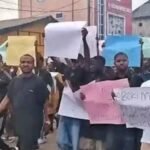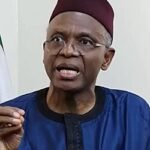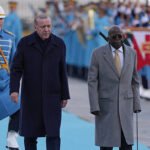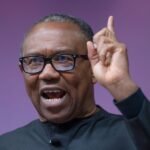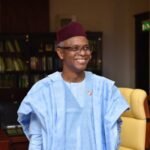
(asks Sylvester Udemezue)
1. I have carefully reviewed the mandate, vision, mission, and focal areas of Nigeria’s National Human Rights Commission (NHRC), as published on its official website. However, I am compelled to ask: What does this Commission actually do in practical terms? Where is its voice, its presence, its power, in the face of Nigeria’s deepening and unchecked human rights violations?
2. NHRC’s Legal Framework: Sound on Paper, Hollow in Practice: The NHRC was established by the National Human Rights Commission Act (1995) and later strengthened by the National Human Rights Commission (Amendment) Act of 2010. Section 6(1)(a) of the Act empowers the Commission “to deal with all matters relating to the protection of human rights as guaranteed by the Constitution of the Federal Republic of Nigeria, the African Charter on Human and Peoples’ Rights, the United Nations Charter, and other international human rights instruments to which Nigeria is a party.” The same Act gives the Commission quasi-judicial powers, such as summoning individuals and institutions, conducting public inquiries, and awarding remedies (Sections 6 and 7).
3. In principle therefore, it should be Nigeria’s foremost human rights watchdog although in reality, it acts like a sleeping guard dog: present, well-fed, but disturbingly quiet.
4. Where was NHRC during the EndSARS Protests (2020) when Nigerians, especially the youth, rose up to protest police brutality. Hundreds were tortured, maimed, or killed across the country. Most infamously, on 20 October 2020, unarmed protesters were shot at the Lekki Toll Gate in Lagos. The NHRC was largely invisible during this national crisis. Its response was muted, its presence marginal. It did not lead the outcry, initiate independent investigations, or seek redress for victims as a truly proactive Commission would.
5. Where was NHRC during the Shi’ite Crackdown in Zaria (2015) when over 300 members of the Islamic Movement in Nigeria (IMN) were reportedly killed by the Nigerian Army in Zaria. Human rights bodies, including Amnesty International, issued damning reports. The NHRC? Almost nothing. No public inquiry. No advocacy. No institutional memory.
6. Where was NHRC during the detention without trial of some Nigerians? Despite clear judicial orders for their release, they were held unlawfully for prolonged periods by state security agencies. The NHRC neither initiated contempt proceedings nor led advocacy for the sanctity of court orders. Section 46 of the Nigerian Constitution empowers any person whose rights are violated to seek redress in court, but the NHRC is specifically mandated to assist such individuals. It did not. It doesn’t!
7. Where was NHRC during human rights violations in Internally Displaced Persons (IDP) Camps? Widespread reports of rape, abuse, and starvation in IDP camps across Borno, Adamawa, and Benue have circulated for years. The NHRC should have camped there, advocating, investigating, publicizing, suing. But again, silence.
8. The examples are too numerous! In *FAWEHINMI V. ABACHA* (2000) 6 NWLR (Pt. 660) 228, the Supreme Court affirmed Nigeria’s obligation to observe the African Charter on Human and Peoples’ Rights. Yet the NHRC, the agency charged with upholding such rights domestically, has often failed to translate these constitutional and international commitments into visible action. Hon Justice Chukwudifu Oputa once famously said that “Justice is not a cloistered virtue. It must be allowed to suffer the scrutiny and respectful, even though outspoken, comments of ordinary men.” Well, here is one such comment: The NHRC appears to have become a glorified seminar committee, issuing communiqués and hosting webinars, but rarely standing with the people when it counts.
9. What then is the point of its continued existence? We live in a country where a lawyer can be stripped, beaten, and paraded in public; where journalists are detained for telling the truth; where soldiers crush peaceful protests; and where court orders are ignored with impunity. Yet, the NHRC is largely reactive, not proactive; passive, not persistent; silent, not strategic. One must then ask: Is it still relevant? Or has it become just another conduit for public funds? If we must continue allocating millions to the NHRC yearly (₦1.98 billion in the 2024 federal budget), then Nigerians deserve to see results. Otherwise, to borrow from the late Chinua Achebe, “A man who brings home ant-infested firewood should expect the lizards to pay him a visit.” An organization that claims to stand for human rights but stands aloof when those rights are trampled upon is not just irrelevant, it is dangerous. It gives false hope and cloaks injustice with the illusion of accountability.
10. Unless someone can convincingly prove otherwise, and I remain open to being so persuaded, it is my respectful view that the NHRC, in its current form, is a monumental waste of public funds. If its presence makes no difference in the lives of those whose rights are violated, then its absence would do no worse. Let us stop funding shadows. Let us demand substance.
Respectfully,
Sylvester Udemezue (udems).
Proctor of The Reality Ministry of Truth, Law and Justice (TRM).
08109024556.
TheRealityMinister@Gmail.Com.
(18 June 2025)



